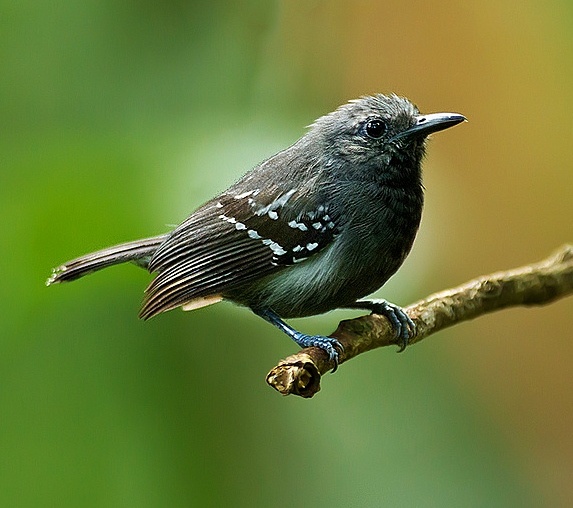 |
| Photo by Hugo Viana (Flickr) |
Common name:
white-flanked antwren (en); choquinha-de-flancos-brancos (pt); myrmidon à flancs blancs (fr); hormiguerito flanquialbo (es); weißflanken-ameisenschlüpfer
Taxonomy:
Order Passeriformes
Family Thamnophilidae
Range:
This species is found from Honduras down to Bolivia and northern Brazil. There are also isolated populations along the coast of eastern and south-eastern Brazil.
Size:
These birds are 9-10,5 cm long and weigh 8-9 g.
Habitat:
The white-flanked antwren is mostly found in the understory and mid-canopy of moist tropical forests and swamp forests, and also along rivers and streams and to a lesser extent in second growth areas. They are present from sea level up to an altitude of 1.200 m.
Diet:
They forage among the foliage, taking small insects and spiders.
Breeding:
White-flanked antwrens breed in a deep cup made of dry leaves, plant fibres and dark fungal rhizomorphs, placed on a tree or scrub up to 4 m above the ground. The female lays 2 white eggs with purple spots, which are incubated by both sexes for 16-19 days. The chicks are fed by both parents and fledge 10-11 days after hatching.
Conservation:
IUCN status – LC (Least Concern)
This species has a very large breeding range and is described as common. The population is expected to decline moderately based on a model of Amazonian deforestation.







